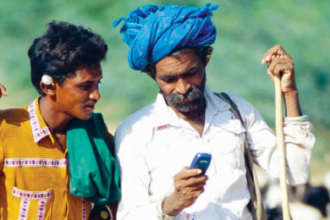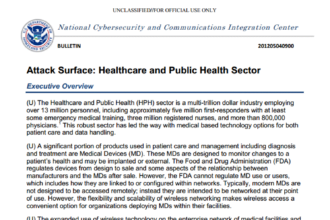A recent report, (PDF link) “Emerging mHealth: Paths for growth,” commissioned by PwC, (PriceWaterhouseCoopers) the Economist Intelligence Unit, is well executed, however it’s important to understand the research sample for this survey.
A recent report, (PDF link) “Emerging mHealth: Paths for growth,” commissioned by PwC, (PriceWaterhouseCoopers) the Economist Intelligence Unit, is well executed, however it’s important to understand the research sample for this survey.
Is it possible that the results of the survey would be different if the sample was broader in terms of the types of patients questioned and the doctors and executives from payer organizations that were selected were equally distributed between urban, suburban and rural areas?
If the results were overwhelmingly outstanding, would that push the implementation of mHealth at an accelerated speed?
Two surveys
According to the report, two surveys were conducted in ten countries: Brazil, China, Denmark, Germany, India, South Africa, Spain, Turkey, the UK and the US.
First survey
The first survey questioned 1,027 patients. Although the patients surveyed were from a broad division of economic backgrounds, ages, levels of education and states of health, the survey does not expand on the demographics. How many patients participated from each of the ten countries? What are the different economic levels? What are the ages? Are the patients male or female? Does the level of education expand to the college level? Did it include a post-graduate degree? Were any of the patients surveyed, “e-Patients?” (The report does mention that two types of patients surveyed included those with poorly managed chronic diseases and those who pay more than 30% of their household income towards health care.)
e-Patients
e-Patients are savvy health care consumers. Enabled, equipped, and empowered, e-Patients understand the importance of digital technology to search for health information to empower them to be proactive in their health care. E-patients interact in social media networking sites including patient communities and they advocate for a change in health care.
The study does not define the type of patient, and that’s an important consideration. There are different types of patients, those actively involved in their health care, and those that are not. I wonder if the survey included patients and “e-Patients,” would the results have been different.
Second survey
The second survey questioned 433 doctors and 345 executives from payer organizations.
The doctors group:
- Public sector (46%)
- Private sector (49%)
- Independent physicians (5%)
Type of setting:
- Urban (67 %)
- Suburban (24%)
- Rural (10%)
Practice:
- Primary care (45%)
- Secondary care (45%)
- Tertiary care (10%)
(Concluding the sample survey, there were executives from payer organizations both public and private with 55% C-Suite or above.)
The sampling of doctors was almost equally divided between the public and private sector, but a minuscule sample from independent physicians may allow this report to be perceived as bias.
Additionally, only 10% of the doctors were from a rural setting. This is interesting. Since telemedicine is used in rural settings, wouldn’t it make sense to have an equal distribution of urban, suburban and rural doctors?
Also, what are the doctors’ ages? How many years have they been practicing medicine? Does this play a role in the adoption of technology?
Social media networking
Moreover, are any of the patients, doctors or other health care providers in this study engaged in social media networking? Again, results may vary depending on the level of engagement. Since there in an intersection with digital technology and social media networking, those engaged in the later may better understand the value of mHealth.
(Research also included 20 interviews of senior executives from health care providers and payers, technology and telecommunications companies and industry organizations, as well as experts from academia, think-tanks and non-governmental organizations.)
Also, as with the patients surveyed, the report doesn’t clarify how many doctors and other professionals surveyed were from each country.
Findings
While this is a detailed report, with valuable information, this report doesn’t offer any remarkable findings that aren’t already being talked about in the social health space, at conferences or in print.
We know that health care is slow to adopt new technologies and resistant to new innovative ways, and that there is a disconnect between the health care silos. We know that costs are a primary concern, and we know that mHealth will have a significant impact on health care.
And while the report calls for a “disruptive change,” is it really “disruption?” Perhaps it’s an “exciting change” and what’s needed are true motivated leaders at the helm ready, willing and able to step out of the boundaries and embrace change and take action to change the status quo.
Leadership
Eric Dishman, Director of Health Innovation at Intel, states in the PwC report that “lack of imagination is one of the biggest problems facing mHealth, but this is common with new technology: before email became widespread, Intel’s surveys showed that most people claimed not to want it.”
If it’s “lack of imagination” then perhaps we need motivated leaders willing to see beyond the vertical, willing to take a leap and jump the curve.
Patients|consumers are pushing for change in health care, they are the ones that can drive innovation.
Patients and consumers will drive the digital revolution. 52 % of the patients surveyed feel mHealth apps/services will make health care more convenient for them. 48% feel that it will improve the quality of their health care and 46% believe mHealth apps/services will overall reduce their health care costs.
Patient-Centric|Consumer Driven Health Care
While nearly half of the patients surveyed predict that mHealth will improve convenience, cost and quality of their health care in the next three years, the survey reveals that “42% of doctors surveyed worry that mHealth will make patients too independent.” The report continues to say that “Among younger doctors-those with less than five years’ experience–53% are worried about the potential for patient independence.” There’s a generational divide, and it’s interesting that younger doctors are the ones worried about too much independence.
Too independent?
What does that actually mean? If it means patients|consumers being empowered and in charge of their health care, unafraid to ask questions and choosing to help themselves be healthier, or mange their conditions, then being too independent is a very good thing. mHealth, like social media networking will never replace the doctor-provider/patient relationship. Health care is a partnership. They both need each other.
Bottom line
I feel to drive digital technology, patients|consumers will play a major role to push innovation forward, but it will take an extraordinary leadership to cultivate new ways of operating.
Next up
Barriers and guiding principles to mHealth
Your turn
We would love to hear your insightful thoughts. Please share them in the comment section below.
Do you feel if the results of this report were overwhelmingly outstanding, would it push the implementation of mHealth at an accelerated speed?
Are you engaged in the mHealth revolution?
As always thank you for your valuable time.
Connect with me | Stay in touch
- Follow Barbara on Twitter
- Visit Barbara on Facebook
- Like Healthin30
- Connect with Barbara on Linkedin
- Become a fan and like Huffingtonpost
Additional Posts
Can Mobile Devices Help Connect the Dots for Better Health Care?
Grand Rounds on Healthin30 Features Health IT – Mobile Technology, Telemedicine and More
Gaming for Better Health
How is Gaming Changing the Landscape in Health Care? Part 4
Telehealth Tapping into Social Influence
Health 2.0/Health IT
Patient Engagement






